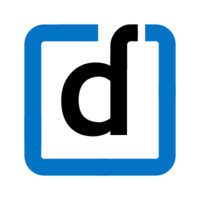

Even after 8 months from COVID-19 declaration as Global Pandemic by WHO, new cases recorded daily across the globe continues to be on the rise attributed to wider spread and second waves across Europe and US, we are, in effect, back at the start of this runaway pandemic.
November 2020 looks bleaker than March, 55 million affected globally, mass vaccination is still a distant reality, experts are less certain about the medium term impacts on people’s health and economic rebound than ever. People’s lives and businesses remain disrupted and the road to what used to be a pre-pandemic normal is only a hope well beyond 2021.
With such long term, enforced socially & professionally distant ways of leading lives, people’s mental state will get impacted more or less permanently in the times to come. A direct impact of this scenario is expected on the employee engagement. A Gallup survey in 2018 found 53% employees were ‘not engaged’ and about 16% ‘actively disengaged’. The direction these figures will move is dependent on people’s experience during these times which requires a key leadership focus and an exceptional drive.
Here are some recommendations on how to leverage technology in these unprecedented times to inspire and engage the workforce productively.
Conduct Continuous Dialogue
In the absence of physical events and parties that your fun commandos were organising, how do you still get your employees to initiate and be part of interesting conversations, feel connected with their fellow colleagues and get some ‘away time’ from their family?
Through Darwinbox’s internal social network - VIBE, you can set up weekly polls, organise fun quizzes and spark challenging debates.
You can also create team specific or interest specific groups and forums for focused engagements and that also provides people a closed group to open up more freely.
Listen and Use Data to Enable Engagement
Is your organisation looking to create a culture of deep listening ? Because building a system of active enquiry and keeping a close ear to employees’ sentiments and mental health goes a long way in strengthening employee engagement, especially in these times. But, what are some of the best ways to actively listen to the employees, capture their sentiments and provide timely support wherever necessary ?
With Darwinbox, you can create Pulse surveys and set up customised workflows that gives you the flexibility to automate any interaction between your workforce and the management teams. Here are the top 4 use cases that we have seen our customers use custom workflows for, especially in these COVID times.
- You want the HR team to conduct a quick dipstick analysis for your team members’ mental health. Inform them via a customised flow called ‘Need You to Check on My Team’ with specific pointers to what you need them to ask. The HR team will be informed accordingly and conduct the survey for your team.
- If you have caught a pulse that some employee is in need of a specific support, say salary advance because of personal reasons or unforeseen expenses, create a workflow with exception approvals in place.
- You want to ensure your employees’ safety and so want to obtain frequent updates on their travel or family members health. Create a mandatory custom workflow for all newcomers or even existing employees and get easy report downloads !
- You want to enquire into how an employee is coping with these tough times and make sure they are okay, but you also don’t want to sound too intrusive. Create a ‘I am not feeling well’ custom workflow that helps employees address any physical or emotional trouble like any sort of fatigue, COVID symptoms, burnouts etc. that can be declared by the employee and subsequently relayed for any medical help if needed.
Take Your Performance Management To The Next Level
It is now a given that annual performance reviews don’t work, right ? They end up becoming a mandatory exercise that employees either dread or want to escape because they feel disengaged from it and often the full picture of their performance is never painted, making it seemingly futile especially during times of frequently changing priorities and shifting expected outcomes at a pace faster than ever.
OKRs was a concept born in 1970’s during the global military and financial uncertainties, first adopted by Intel and then popularised by Google has benefited and evolved as one of the finest performance management concepts over time through thousands of successful experiences.
The OKRs methodology is a system for setting, cascading and communicating goals throughout your organization. OKRs bring focus because they make it easy for companies, departments, and teams to recognize not only the current Key Results expected but also medium term Objectives, and to align them across the organisation.
Complemented by continuous & multi stakeholders feedback, transparency of objectives & achievement updates across and an opportunity to set Key Results beyond the mandated sets this apart from traditional performance management systems.
In a study conducted by Darwinbox, 76% of the respondents said that they leverage continuous feedback in some way. Whether it is having regular check-ins between manager and reportee, or sending over feedback, employees at a majority of organisations are already leveraging the power of our advanced system which is aimed at making the employee the owner of their own performance. Here’s an interesting article on Performance appraisal during covid-19.
Recognise and Appreciate
While businesses are striving to bolster employee engagement even as work goes remote, and rejigging their strategies, most are overlooking a reshuffle of another critical aspect - rewards and recognition.
However, HRs cannot rely on the traditional rewarding system either, of giving out bonuses or handing out gift coupons. The system of rewards has to move towards becoming more personalised, gamified and real-time. A smart rewarding system stems from a culture of empathy that is currently the number one skill that leaders are honing for transforming employee experience in the workplace.
By creating a relevant recognition program for the organisation, especially one that rewards behaviour very specific to remote working; enabling peer recognition; utilising the existing technology to connect and celebrate like Zoom calls or Google Meet and the HR Tech; your employees will feel loved, respected and valued for what they bring to the organisation.
Additionally, with Darwinbox, you can provide mental wellness programs for your employees so they can consult an expert directly. Create a custom workflow and tag it to an integrated third party wellness clinic where employees can book slots for consultations.
The Darwinbox Rewards and Recognition module provides an easy solution to enable the total rewards system in your organisation by offering the flexibility to create your own rewards universe and assigning redeemable points as per your budget. Employees can recognise and receive recognition even on a mobile in a few quick taps. It integrates well with any of the rewards redemption websites to give a seamless experience to your employees, while keeping the process exciting.
In conclusion, the new normal is here to stay and organisations will have to start putting every aspect of strategy on the table for a closer view to measure its relevance in the current times. As businesses start preparing for getting the employees back to work, resetting the strategies for improving their people experience will be one of the key drivers of growth in these testing times.
Stay productive, Stay safe !


Speak Your Mind